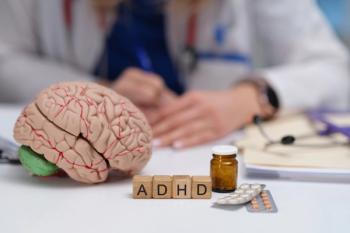
Poor Sleep May Hike Mortality in Metabolic Syndrome
Short sleep duration was associated with increased risk of mortality among people with a cluster of cardiovascular risk factors known as metabolic syndrome, according to an observational study. Among more than 1300 adults who spent the night in a sleep lab, those with metabolic syndrome who slept 6 or more hours were more likely to die of cardiovascular disease (HR 1.49, 95% CI 0.75-2.97) during the 16.6-year follow-up period than people without metabolic syndrome, reported Julio Fernandez-Mendoza, PhD, of the Penn State Hershey Sleep Research & Treatment Center, and colleagues. People who slept less than 6 hours were more likely to die of heart disease or stroke (HR 2.10, 95% CI 1.39- 3.16), as well as from any cause (HR 1.99 times, 95% CI 1.53-2.59), compared with those without metabolic syndrome, the researchers wrote online in the Journal of the American Heart Association. The researchers noted that the relationship was seen even after adjusting for sleep apnea, a known heart disease risk. “Sleep should be evaluated and taken into consideration when calculating cardiovascular risk, especially in those who have already developed cardiometabolic risk factors,” Fernandez-Mendoza told MedPage Today via email. “For clinicians, the implications are to always question their patients about their sleep beyond sleep apnea and refer to a sleep clinic if there is a suspicion of a sleep disorder or sleep of less than 6 hours in duration. For the public, [the implications are] to take care of their sleep and consult with their clinicians, particularly if they already have the metabolic syndrome or any of its risk factors (obesity, high blood pressure, or glucose, etc.).” Wendy Troxel, PhD, senior behavioral and social scientist at RAND Corporation, who was not involved in the study, also commented on the implications: “This suggests the possibility that sleep-focused interventions which seek to extend sleep duration could have a positive impact on cardiovascular health and reduce mortality risk.” For the study, Fernandez-Mendoza and colleagues randomly selected 16,583 men and women from the Penn State Adult Cohort to participate in a telephone interview on their history of sleep difficulty, heart disease, stroke, daily consumption of caffeine, and tobacco use, among other things. During the second phase of the study, 741 men and 1000 women were randomly selected from the first phase to spend 1 night in the sleep laboratory, where they were continuously monitored for 8 hours using 16-channel polysomnography, including electroencephalogram, electrooculogram, and electromyogram.
Newsletter
Access practical, evidence-based guidance to support better care for our youngest patients. Join our email list for the latest clinical updates.








